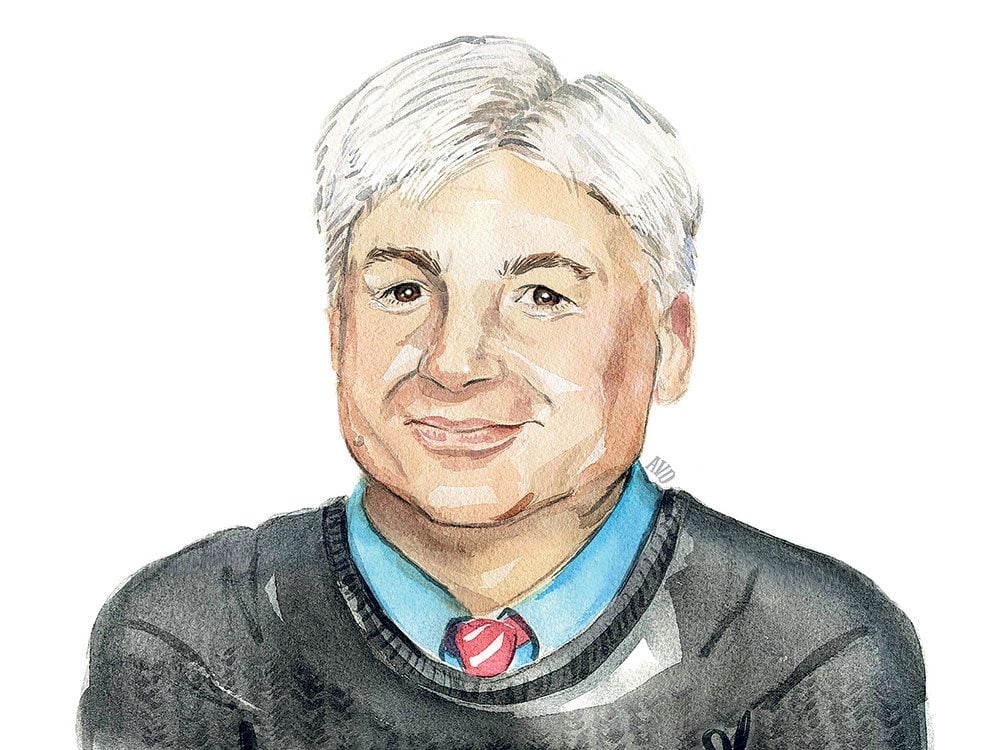Mike Myers: The RD Interview
Funnyman Mike Myers on manners, Caesars and patriotic pride.

15 Minutes with Mike Myers
Reader’s Digest: You were born and raised in this country but have lived elsewhere for most of your adult life. In your book, you say there is “nothing more Canadian than a Canadian who lives outside of Canada.” Discuss.
Mike Myers: When I go home, to Toronto, my jaw untightens. Civility doesn’t make headlines, but it’s very sexy to me. People ask me, “What’s the flavour of Canada?” Like, Mexico is salsa, America is hot dogs and hamburgers. I say Canada is celery salt – it’s one of my favourites and it’s very subtle, but that doesn’t mean it’s not indelible.
Celery salt also makes a great rim for a Caesar, which is another Canadian delight.
A Caesar is the greatest drink and the toughest sell. “Clam juice and tomato juice – what?!” Just try it, I always say.
Your new tome, Canada, is a mix of history, psychology, photography, comedy and memoir. How do you imagine people reading it?
At the risk of making it sound like a dessert topping and a floor wax – it’s at once a coffee-table book, a beach book, a stocking stuffer and a souvenir.
Most people know you as a comedian and actor. Why write a book?
It’s 53 years in the making, and it’s a chronology of the relationship between me and Canada. Del Close, the famous improve teacher, said, “Don’t invent, remember.” That’s what this is: There’s no delete option in my head: I tend to retain things.
At one point you say Canadians have taken apology to a burlesque level. Is that something you’re guilty of?
Comedian Kevin Nealon always used to do an impression of me that began with “In Canada” and ended with “sorry.” The trope I heard about Canadians my whole life is that we don’t have an identity, and I couldn’t disagree more. We know ourselves very, very well. We’ve chosen to do so many big things: universal health care, providing peacekeeping forces to the United Nations, inventing Pablum. These things are fantastic, but they’re not flashy. With the splashier things, I think we do doubt ourselves. And when you combine that with the British sense of manners, you have an apologetic state.
You claim to have learned about the United States from The Brady Bunch and Bewitched. How do you think Americans learn about Canadians?
I don’t think they have. There’s a line in the book where a friend says, “Wow, you’ve got a lot of American friends and a lot of opinions about us.” I say, “Well, what do you guys think of us?” And he says, “We don’t.”
You’ve been honoured many times by your home country – a star on our Walk of Fame, a street named after you, a stamp. Does any one accolade stick out?
I was included in a CBC poll called The Greatest Canadian. Just to be part of that was pretty mind-blowing.
I’d like to end by taking exception to your statement that poutine is not a Canadian dish but “just a topping.” I beg to differ.
I was being facetious! What I was trying to say was that a single dish does not constitute a cuisine, and to build a case, I relegated poutine to a topping. I would like to state, for the record, that I am pro-poutine.
Canada is available now.



